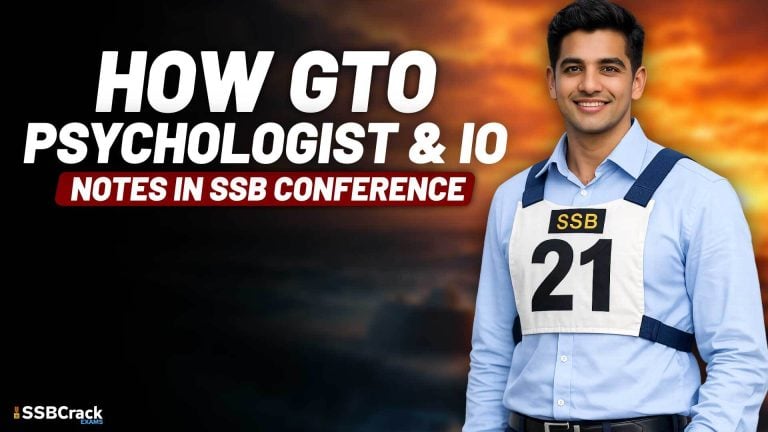Vacha is one of the three elements that forms the basis of SSB evaluation procedure. Vacha means words a candidate speaks. Undoubtedly, the words he speak must match his thought process and his actions. Vacha is the bridge that links a candidates Manasa – the thought process and his Karmana – his deeds. There are many candidates who have revolutionary ideas in their minds but are unable to convey it to others. As a result, they can’t enforce their ideas and neither can they take part in effective group discussion, staying away from influencing the group.
Therefore, it is very important for a candidate to develop good communication skills and know how to present them to his audience. Here are some of the best techniques which a candidate can use to develop effluent communication skills:
1. Have a good English vocabulary: This is the first and foremost thing. Hindi, matrbhasa and all that BS doesn’t work in real life interviews. Today’s army need to interact with foreign armies and what you think will be the medium of communication for them? Improve your vocabulary by reading newspapers and magazines in daily routine. If you’re not sure of the meaning of a word, don’t use it.
2. Use new words in sentences: Mere learning new words will not help you unless you learn to use it in sentences. Try to use the word in sentences in your daily life.
3. Don’t use unnecessary conversation fillers: Conversation fillers are those words which you subconsciously use when you run out of words. Like ‘umm’, ‘ah’, ‘you know’, ‘like’, etc.
4. Be brief: Be brief in what you are speaking. This means that you provide enough information for the other person to understand what you are trying to say. This is very helpful in lecturette when you have a topic and you have limited time to present it to the audience. According to Lifehacker.com, the acronym of brief is Background, Reason, Information, End, Follow-up. Next time, try this framework in your next lecturette topic – present a background of the topic for first 30 secs, present a reason supporting your views or supporting what’s happening in the next 30 secs, give information about it in the next 1 minute, conclude the topic in the next 30 seconds and finally, revise the topic in the next 30 secs. This is how you can cover up your lecturette in 3 mins sharp and crisp.
5. Check your body language: Have an open and inviting body language while speaking. Don’t show yourself to be conservative. This means do not cross your legs, do not fold your arms and maintain eye contact while in GD or GPE.
6. Make eye contact: Whenever you are speaking to an individual, look into their eyes. It shows that you are interested in talking with them.
7. Know your audience: Know whom are you speaking to. If it is a bunch of kids in a school, you may use hypothesis and stories to make up your conversation. If it is someone of the same age group, you can talk about latest happenings and current affairs. Always try to keep the other person’s perspective in mind when you try to convey your message.
8. Speak clearly: Be clear in what you want to convey. If people are asking you to repeat yourself after you have said something, try to do a better job of articulating yourself in a better manner.
9. A good speaker is a good listener first: Any good speaker, in the beginning was a good listener. Listening is an important aspect of good communication and it helps in countering or supporting ones views in GD and GPE.
10. Maintain a positive attitude: Whole SSB revolves around the positivity of a candidate. And positivity first come in your thoughts and reflects in your actions through your words.
11. Be Yourself: The moment you start faking yourself is the moment you are no longer you. Don’t try to imitate someone else’s ideas, don’t try to mock someone else’s accent, just be you and go for it.
12. It’s okay to be nervous: Everyone feels a little nervousness while speaking or delivering something to your audience. Do not take this feeling make you feel that you’ll not perform good. It just means that you are ready to go.
13. Timing is important: There is a set time for a topic after which your audience starts losing your attention. Ever wondered why TED talks are of less than 20 minutes? Keep time in check.
14. Organize Your Content: Organizing content is really helpful in lecturette topics when you have only limited time to speak up. As the acronym for delivering your content goes – BRIEF, try to follow the same acronym while preparing your content. Background, Reason, Information, End and Follow-up is the sequence that should be followed.
15. Think before you speak: Don’t just speak whatever comes to your mind. Think upon it, ponder it and then decide whether to speak it or not.
16.Learn some new phrases: Learning new phrases will help you in the time when you need some more time to think. Say a relevant phrase in between your talk and allow yourself some more time to think.
17. Record Yourself: Who is the best judge for you other than yourself? Record yourself giving a speech and improve your speaking skills by analyzing yourself later. Make sure you have not used any fillers like ‘um’ or ‘ah’ and have followed all the above tips. You will be a good speaker in no time. The best practice is to do this in front of a mirror where you can also monitor your gestures and body language.
18. Practice: Because practice makes man perfect.
Conclusion:
With these tips and with thorough preparation and practice, one can conquer nervousness and really be a good speaker.
Having good communication is a learnable skill. Do practice it on a daily basis to help you in PPDT, GD, GPE and Lecturette, and in fact, in your day to day life too.
To crack the SSB Interview, You can join our SSB interview live classes batch and we recommend you to Enroll SSB INTERVIEW ONLINE COURSE. Trusted by thousands of defence aspirants.
Also Read: Psychology And SSB Interview Process: All Defence Aspirants Must Know







